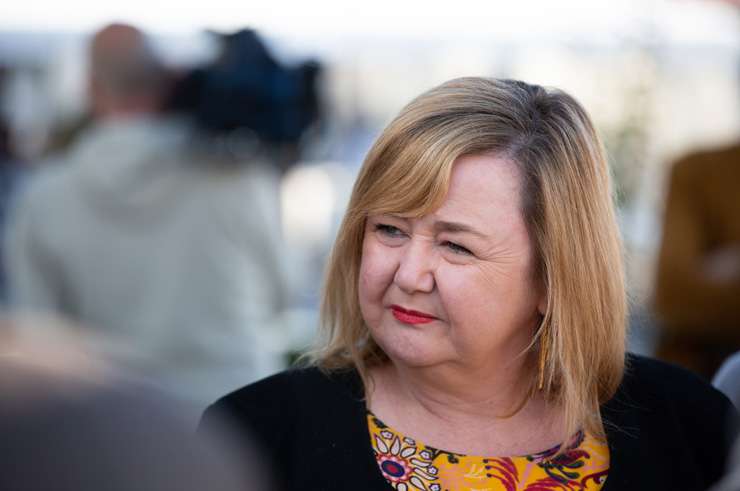The number of first-home buyers given financial aid by the Government has plunged, new figures show.
Kāinga Ora said it had approved 1149 applications for the First Home Grant in the first quarter of this year, down 60% from the 2966 applications it approved in the first three months of 2021.
Most of the First Home Grants handed out in the three months to the end of March 2022 were for properties in Auckland (301) and Christchurch (233). Three of the grants were for homes in Tauranga, while Hamilton and Rotorua had one each.
Under the scheme, a person can apply for up to $5000 for an existing home and up to $10,000 for a new home to put towards their deposit, providing they have been contributing to KiwiSaver for at least three years and that they earn within the set income cap.
Start your property search
Approvals have been steadily declining by about 1000 every three months since July 2021.
The dwindling number of approvals, only given once a property has been found and a sale and purchase agreement has been signed, meant just $6.52 million was handed out in first quarter of this year - down from $16.78m given out during the first quarter of 2021.
About two thirds of the properties bought using the grant in the first quarter of this year were existing homes, with the remaining third for new homes – a similar split to the first quarter of 2021.
Last month the Government raised the house price caps for those purchasing through the First Home Grant scheme to take into account changes to the burgeoning housing market. First-home buyers can now purchase either a new or existing property for up to $875,000 in Auckland and be eligible for the grant.
Housing Minister Megan Woods said at the time of the announcement that funding in the Budget would pay for about 7000 extra First Home Grants each year.
In the 12 months to the end of March 2022, the Government approved 9474 grants, less than half of the 20,000-a-year target that the National Government set when it announced the scheme – then called the Home Start Grants – in 2014.
A spokesperson for the Ministry of Housing and Urban Development blamed the lower uptake on the house price caps not keeping pace with changes in house prices over the last 12 months.

Housing Minister Megan Woods has raised the price caps for homes bought with the First Home Grant. Photo / Sylvie Whinray
“This meant there were fewer homes for sale under the caps for buyers wanting to access the First Home products. House price caps have been updated for the First Home Grant and removed for the First Home Loan to provide a greater choice of homes for prospective first-home buyers,” the spokesperson told OneRoof.
Kāinga Ora manager of home ownership products Jason Lovell told OneRoof that factors outside the Government’s control, such as house prices, interest rates and lending requirements, could impact the number of people applying and being approved for a First Home Grant.
But Mortgage Lab chief executive Rupert Gough said the latest figures showed just how far “out of whack” the previous “terrible” price caps were.
The number of pre-approvals for the first quarter of this year was 2511, more than double the number of approvals. Gough said that could be the difference between the people who had actually been able to find properties within the price range.
“People were having to find houses for $400,000 in many parts of the country. Now the caps are more geographically accurate,” he told OneRoof. “It was well overdue for a price change, but it will be interesting to see what the July to September quarter is like.”
Infometrics principal economist Brad Olsen said home ownership was still very much out of reach for a number of New Zealanders. “Even government help isn’t helping any more or hasn’t been,” he said.
Rising interest rates had also put first-home buyers under pressure. “The numbers make it really, really difficult. Yes [house prices] have pulled back but not by a lot.”
National’s housing spokesperson Chris Bishop told OneRoof that people were finding it difficult to get a home loan because of the Government’s changes to the Credit Contracts and Consumer Finance Act, which tightened lending requirements.

Mortgage Lab chief executive Rupert Gough says the prices are more realistic. Photo / Fiona Goodall
“The Government said a year ago, in March 2021, they were making changes that would have enabled many more people to get First Home Grants. The opposite has actually proven to be the case,” he said.
Bishop said lifting the caps would make more people eligible for the First Home Grant, but he would be closely watching to see whether people could actually get finance.
He welcomed the changes announced in the Budget to try and help more people into first homes, but said the best way to do that would be to reform the Resource Management Act and help finance new developments to increase the housing supply.
A spokesperson for Ms Woods said the Government was aware how tough it had become for many people to buy their first home. “There is a lot of work underway to ramp up the supply of new affordable housing, but in the meantime it’s being made easier for people to get access to First Home Grants by aligning the house price caps with lower quartile market values for new and existing properties,“ the spokesperson said.
That work included introducing greater density and more affordable homes in urban areas through the National Policy Statement and more funding for more new affordable housing.
















































































